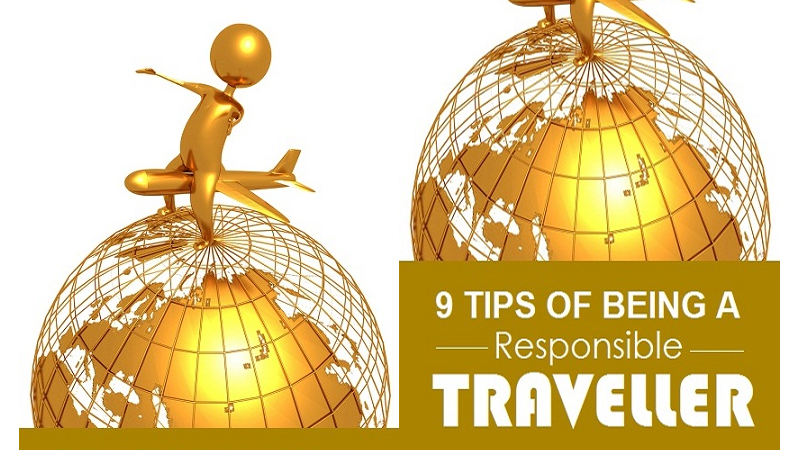9 tips for being a responsible traveler
📱
As travelers, we have a responsibility to act responsibly wherever we go in the world. Tourism provides a source of income for local communities and their families.
For our part, we have a responsibility to have a positive impact on the environment and to respect the local people we come into contact with. All it takes is some thought and consideration and local awareness. The following tips will help you get the most out of your experience as a responsible traveler.
1. Research:
It’s important to do your research on where you’re going because it can help you familiarize yourself with the local culture and customs. It will better prepare them for future journeys and allow them to get used to their surroundings. Learning some basic words in the local language is always a bonus, as it will help you get through difficult times.
2. Choose carefully:
When booking hotels, hostels, etc., choose your travel provider carefully. Make sure they have sound ecological policies and practices and that their approach is sincere so you don’t end up being misled.
see more: Adventure Bike Tour
3. Dress appropriately:
Keep in mind that what may seem right to you in your own country may not be suitable in the country you are visiting, especially in a third world country. Bring appropriate clothing and don’t be disrespectful to the locals.
4. Buy local products:
Support locals by buying from locals instead of importing. For some poor families, this is their only source of income, so while you will be helping them earn extra income, this gesture will give you the rewarding experience of giving back to the local community.
see more: work team outing ideas
5. Avoid wasting water and littering:
Don’t waste water on vacation. Conserve water when bathing, don’t leave the faucet on when brushing your teeth, don’t exacerbate their plight as many countries face water shortages. Also keep the surroundings clean. Do not litter with bottles and other waste. Set an example by keeping the place clean so other travelers can follow.
6. Protect nature and wildlife:
When visiting a wildlife sanctuary, do not destroy wildlife habitats, which are home to many endangered animal species. Avoid feeding animals. It may disrupt their natural feeding process, and if they are constantly being fed by humans, they may not even be able to fend for themselves. In a natural park, enjoy the views, but don’t take home anything. Do not disturb vegetation by picking flowers. Most importantly, to show your support for wildlife, do not buy anything made from endangered species.
see more: Children’s Camp
7. Respect local culture and sacred sites:
Research local customs and traditions thoroughly to avoid doing anything that would inadvertently offend locals. Try learning to say words like “please” and “thank you” in your native language, which will make locals appreciate you. Do not enter places of worship or take pictures without permission. Don’t even photograph others without their permission, which can be seen as total disregard.
8. Avoid giving money to beggars:
As ruthless as it may seem, don’t give money to children who come to beg. They are mostly sent by their parents and in some places by child traffickers who use them for their own illicit tactics. Better buy them something to eat and if you really want to help them, there are various NGOs working to improve them and you can donate the same.
9. Hire a Local Guide:
Hire a guide when visiting historic places. Local guides can give you more detailed information about the cultural history of the area, and you in turn will help them make a living.

